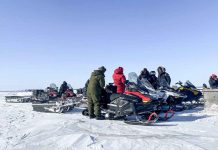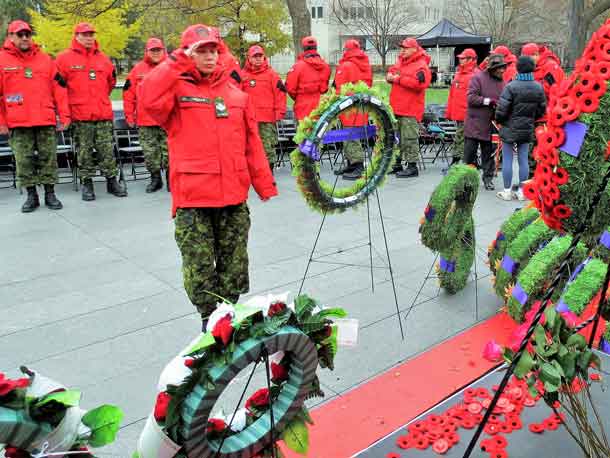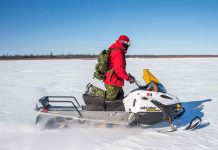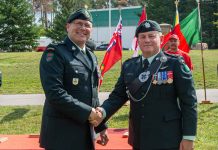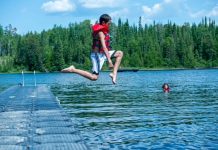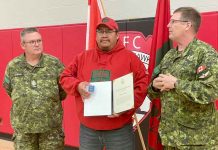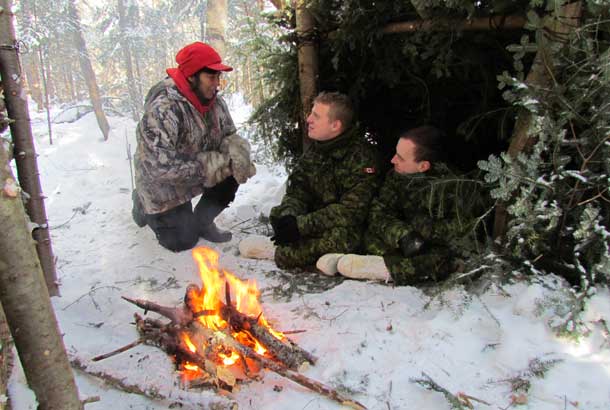
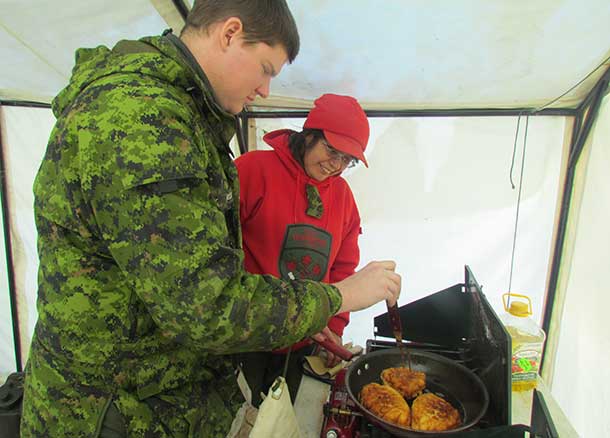
SUDBURY – Fifty members of the Lincoln and Welland Regiment returned to their homes in the Niagara Region having got what they wanted – cold temperatures, lots of snow, and a lot of knowledge about how to survive in the bush.
The soldiers, all part-time reservists, completed several days of winter training at a military area in the bush, 30 kilometres south of Sudbury, learning to live and function in temperatures that dipped to -27C with wind chills as low as -36C.
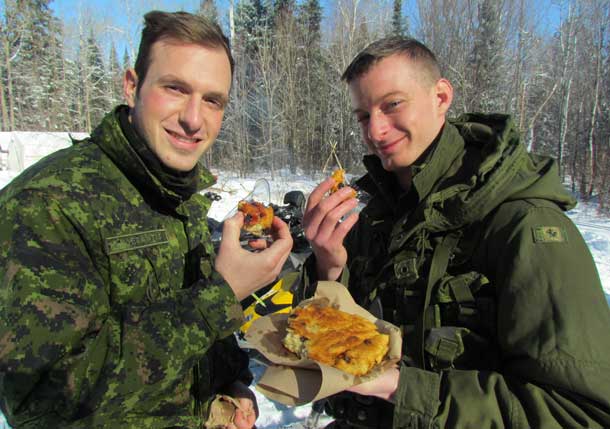
A significant part of the training at the aptly named Exercise Frosty Fingers was provided by Canadian Rangers from Eabametoong First Nation, a remote Oji-Cree community 300 kilometres north of Thunder Bay. The Rangers, part-time reserve soldiers themselves, were all experts in the outdoors, who still use their traditional Aboriginal skills to hunt, fish, trap, and live on the land.
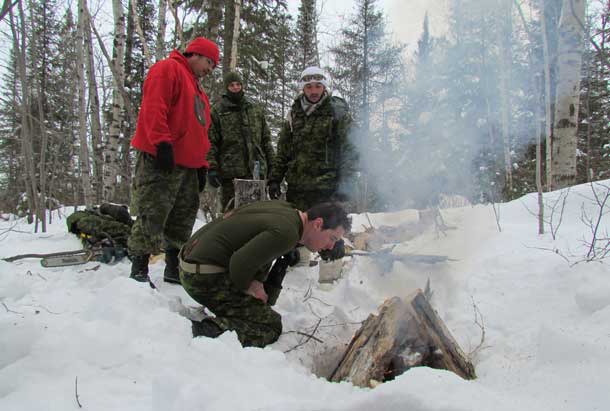
Their ability to pass on some of their survival skills to the soldiers from the Lincoln and Welland Regiment was a success, said Lieutenant-Colonel Bruce Mair, the regiment’s commanding officer.
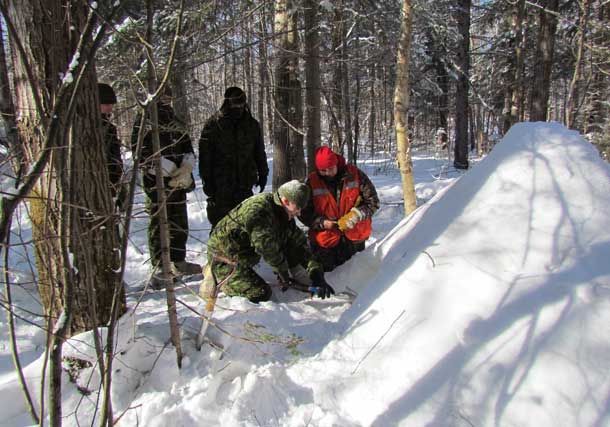
“The training makes our soldiers able to be comfortable in a winter environment, so it becomes something that is not be feared,” he said. “They learn winter is something you can survive in, that you can thrive in, and accomplish things more readily with the kind of training they got here.”
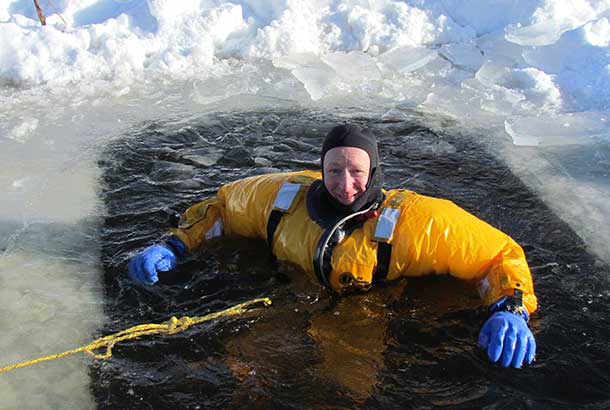
The soldiers went north for winter training because too often in the past the milder climate in the Niagara Region resulted in soldiers trying to learn how to hand pull toboggans by hauling them through mud or over grass instead of in snow. “Coming up here we were pretty much guaranteed to have snow and some cold weather,” Col. Mair said. “It’s much better for winter training to have snow and minus 15 or 20 degrees than two or three degrees above zero.”
A highlight of the training was learning cold water recovery techniques, in which a hole is cut in lake ice and soldiers, wearing immersion suits, went into the water and learned how to get out of it before becoming overcome by the cold. They learned several basic winter survival skills, including how to light fires, build and live overnight in emergency shelters, how to use fires to send emergency signals, and how to snare and clean rabbits for food, as well as how to make bannock. They learned how to make a Quincy hut, a First Nation snow house version of an Inuit igloo.

The training was a great experience, said Corporal James Schmelzer, a student at Brock University. “I’m learning how to survive up here,” he said. “It’s been very interesting. The ice rescue training was a first for me and so was a lot of the other stuff we’ve learned here. You learn a lot from the Rangers.”
The soldiers slept in sleeping bags in army tents. “It was cold last night,” Cpl. Schmelzer said. “It kept me awake on and off. I didn’t sleep perfectly but I managed.”
Sergeant Jean Rabbit-Waboose, the senior Ranger instructor, said the soldiers asked her a lot of questions about her life in the Far North of Ontario and about what she does when she goes hunting and trapping in the winter.
“You could tell some of them didn’t know what they were doing,” she said, “and a few, who do some hunting and camping, had some knowledge of the bush.
“One of them asked me if I always carry matches when I go into the bush and I said yes. Always, he asked me, and I said yes, always, your life can depend on being able to start a fire. They wanted to learn and I think we taught them a lot.”
Sergeant Peter Moon
(Sergeant Peter Moon is the public affairs ranger for 3rd Canadian Ranger Patrol Group at Canadian Armed Forces Base Borden.)
Photos by Sergeant Peter Moon.

